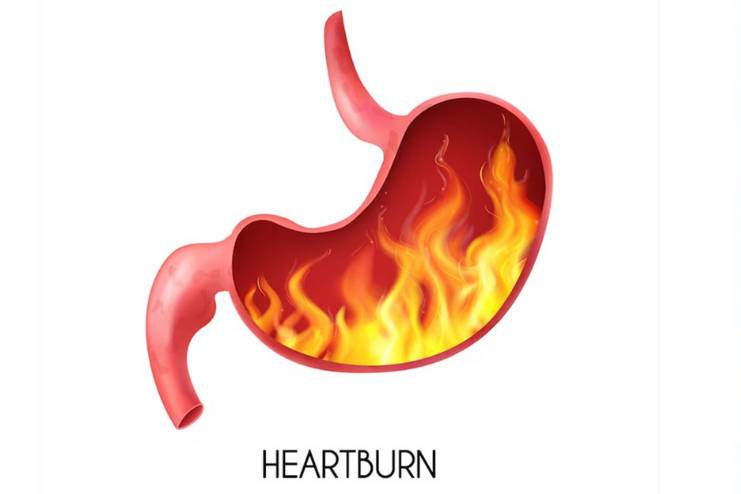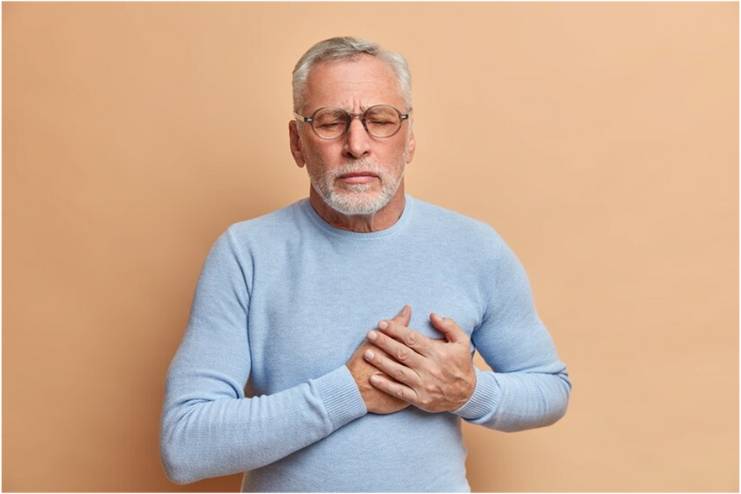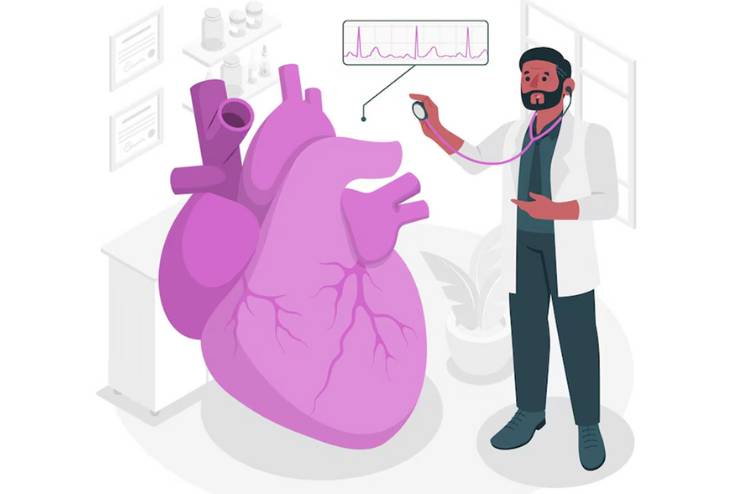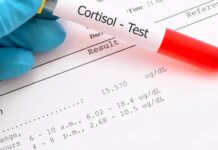AI Contribution
At HealthSpectra, we may use AI to refine grammar and structure, but every piece is shaped, checked, and approved by real people, our expert writers and editors, to ensure clarity, credibility, and care. Learn more..Affiliate Disclaimer
Some links in this article are affiliate links. We may earn a small commission if you make a purchase through these links, at no extra cost to you. We only recommend products we find useful to our readersChest pain can be a serious symptom of various conditions, such as acid reflux and a heart attack. While in most cases, it is harmless as a symptom of acid reflux, it could indicate a heart attack as well. Most people get confused and worry. Hence, it is essential to understand the key differences between acid reflux and a heart attack to avoid such confusion.
With a good understanding of these two conditions, you can make informed decisions about when to rush to a hospital. In this article, we will explore the symptoms of acid reflux and heart attack, find the key distinctions, and provide some guidance on when to seek help.
Acid Reflux or Heartburn Symptoms

Acid reflux is often referred to as heartburn, when the stomach acids flow back into the esophagus, causing a burning sensation and discomfort. Occasional acid reflux is common and isn’t serious, but frequent heartburn may indicate a chronic condition called Gastroesophageal Reflux Disease (GERD). Let’s find out its common symptoms:

- Burning sensation (Heartburn)
- Regurgitation
- Chest pain
- Sore throat or hoarseness
- Nausea and indigestion
- Coughing or breathing difficulties
Heart Attack Symptoms

Also called myocardial infarction, a heart attack occurs when the blood flowing to the heart is severely reduced or blocked. The blockage is due to a buildup of fat and cholesterol in the arteries. Once you recognize these symptoms, you can react promptly and rush to save a life by reducing further heart damage. Here are the common symptoms:
- Chest pain or discomfort
- Pain in other areas
- Shortness of breath
- Cold sweats
- Fatigue
- Nausea or vomiting
- Lightheadedness or dizziness
Key Differences to Note

Chest pain is a common symptom of both heart attack and acid reflux, and they share some common symptoms. Yet, it’s critical to differentiate between them.
Heart Attack:
- Chest Pain is often described as pressure, tightness, or squeezing. It tends to migrate to the arm, neck, jaw, or back.
- Other Symptoms: Shortness of breath, nausea, vomiting, cold sweat, dizziness, lightheadedness, and anxiety-like a panic attack
- Pain Pattern: Pain can be intermittent and tends to worsen with exertion or stress
- Associated Symptoms: Sweating, dizziness, lightheadedness, and tiredness
- In some patients, the pain can radiate to the arms, neck, jaw, shoulders, or upper back.
Acid Reflux:
- Chest Pain is a burning sensation in the chest after eating or lying down.
- Other symptoms are bloating, belching, a sour taste in the mouth, and sore throat.
- Pain Pattern: Typically associated with meals, especially large or spicy ones, and worsens when lying down.
- Associated Symptoms: Commonly associated with bloating and belching, and not by sweat, dizziness, or fatigue.
When to See A Doctor for Chest Pain

- Heart Attack: Immediate emergency care is critical. Call 911 if any heart attack symptoms are visible. These include unexplained chest pain or discomfort. If breathing stops, start chest compressions right away.
- Acid Reflux: While acid reflux isn’t an emergency, visit your healthcare provider in case of persistent or severe symptoms. Symptoms include difficulty swallowing or weight loss. For acute acid reflux, over-the-counter antacids or medications help.
Conclusion
Chest pain is a symptom that calls for attention since it might indicate conditions from benign to life-threatening. Even though acid reflux is usually uncomfortable, primarily due to irritation by the stomach acid, a heart attack is a medical emergency due to the restriction of blood flow to the heart.
Understanding the key differences between the two is critical. Heart attack symptoms often include radiating pain, sweating, dizziness, and fatigue, whereas acid reflux symptoms are typically limited to the chest, associated with meals, and accompanied by belching or bloating.
When in doubt, seek immediate medical care for unexplained or severe chest pain, as early intervention can save lives in the case of a heart attack. For persistent acid reflux, consult a doctor to rule out underlying conditions like GERD and to determine an appropriate treatment plan.
In this Article






















